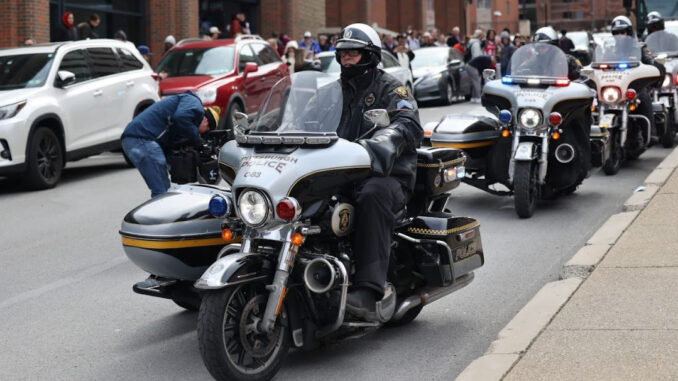
Eliyahu Gasson | Opinions Editor
Since Feb. 26, the Pittsburgh Bureau of Police has no longer been sending officers to respond to calls that are not in-progress emergencies between the hours of 3 a.m. and 7 a.m.
This means that Pittsburgh police officers will not respond to calls for criminal mischief, theft and harassment. Instead such calls will be handled by the Telephone Reporting Unit or online citizen reporting.
“The data that informed the changes shows that only about 8% of all priority calls are dispatched between 3 a.m. and 7 a.m.,” Cara Cruz, Public Information Officer for the City of Pittsburgh, told The Duke in an email.
According to Pittsburgh police Chief Larry Scirotto, the Pittsburgh Bureau of Police is aiming to cut call volume from around 200,000 calls per year to around 50,000 calls per year.
Police will continue to respond to incidents in progress, a news release from the City of Pittsburgh said, including any crime where a person may need medical aid, any domestic disputes, calls with evidence or where the Mobile Crime Unit will be requested to process a scene.
The news release also stated that the change has been implemented to improve officer wellness and dedicate more officers to community outreach, transitioning personnel from eight-hour work days to 10-hour shifts each week.
“An additional day away from work each week to focus on family, friends or outside pursuits is key to creating a healthy workforce and contributes to the bureau’s goal of not only recruiting new officers, but retaining them for the long haul,” Scirotto said.
The Pittsburgh Bureau of Police is also reducing the number of officers patrolling between 3 a.m. and 7 a.m. with WPXI reporting that on some overnight shifts there will be 22 officers covering the city. According to Cruz, there will be approximately 12 less officers across the city.
“That allows our officers to be engaged in [the] community in a way. Now they’re at the YMCA instead of sitting on the 10th Street bypass with a bike complaint,” Scirotto said.
This news has some Duquesne students concerned about safety off-campus.
Jennifer Herron, a junior psychology major at Duquesne and resident of Pittsburgh’s Shadyside neighborhood, told The Duke that she feels uneasy about the news, but isn’t overly concerned.
“I live in a pretty decent area, but I do live with a bar right around the corner, and that is a little scary just because it’s different people every weekend,” Herron said. “It’s kind of scary that they’re announcing this. That could increase crime just because you think you can get away with more if there’s less police patrolling.”
“It’s kind of like, ‘hey criminals, from the hours of 3 to 7 a.m. there’s not really going to be any police presence.’ And I feel like that’s a mistake,” said Izzy Silvestros, a freshman biomedical engineering major at Duquesne.
“I think that it definitely affects a lot of people, especially those who live on the South Side Flats or City View,” Silvestros said.
Silvestros is most concerned about the safety of students around Liebermann Hall where the biomedical engineering program is located. Liebermann Hall, at the corner of Fifth Avenue and Sixth Avenue, is at the edge of Downtown.
“I’ve seen homeless people trying to get into the building,” Silvestros said. “I don’t know how late people are usually at Liebermann. I’m not there that late, but other people might be, and that might be a concern.”
Duquesne University Campus Police Chief Eric Holmes said in a statement to The Duke, “We recognize the uniqueness of providing safety on a college campus in an urban setting. Our staffing levels are based on the needs of the university.”
For emergencies on campus, students can call DUPO’s emergency phone number: (412) 396-2677.
